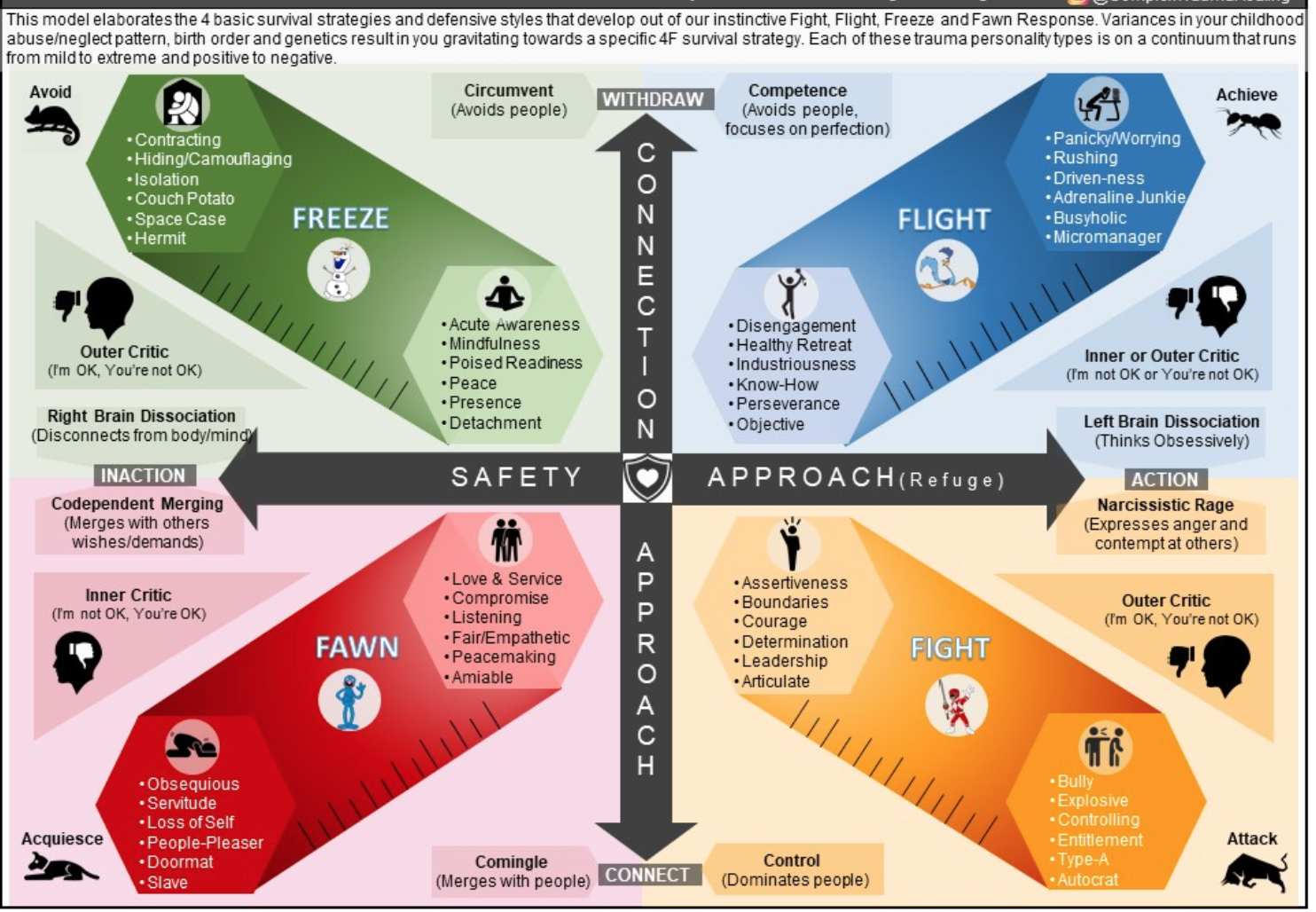

"Our nervous systems tend to focus on negative emotions and experiences because that is what will help us survive," Helfand says. But in other cases, our brains rely too much on these stress responses, in a way that can be impairing.įor example, chronic stress or trauma can rewire the brain to believe that threats are constantly present - a common symptom of many mental health conditions, like PTSD. In some cases, these responses can be useful, or even life saving. See historical chart positions, reviews, and more. David Helfand, a psychologist at LifeWise Therapy. Listen now to Fight, Flight, Freeze and Fawn CPTSD and Trauma Healing Coach from Think Unbroken with Michael Unbroken CPTSD, TRAUMA and Mental Health Healing Podcast on Chartable. There are four primary stress responses: fight, flight, freeze, and fawn, says Dr. While we all have that survival instinct, we react to them in different ways.įor example, if your response to that near car accident is to repeatedly honk your horn and yell at the other driver, then your stress response in that situation is "fight."

If you struggle with the fawn response, it will be important to focus on increasing awareness of your emotions. Steve Haines’s book suggests that one-off traumatic events, developmental trauma, and stress in life which becomes overwhelming all work in similar ways through the body and brain. "In the face of a real or perceived threat to our lives, natural defense mechanisms kick in and focus the body and brain acutely and exclusively on dealing with that threat." 3 Ways to Ease the Fawn Response to Trauma. What is cPTSD cPTSD is also called developmental trauma. Ken Duckworth, a psychiatrist and chief medical officer of the National Alliance on Mental Illness.

"Human beings are biologically wired for survival," says Dr. Freeze Feeling stuck in a certain part of the body, feeling cold or numb, physical stiffness or heaviness of limbs, decreased heart-rate, restricted breathing. You can't control these reactions because they are your body's instinct to survive under stress. Despite our best efforts to control our bodies, sometimes our natural instincts take over.įor example, when you face a threat like a near car crash, your sympathetic nervous system takes control: Your heart rate goes up, you start to sweat, and your pupils dilate. 3) A person will have a freeze or dissociative, fight, flight, or fawn (co-dependency) response to this continual state of trauma and not being able to flee.


 0 kommentar(er)
0 kommentar(er)
